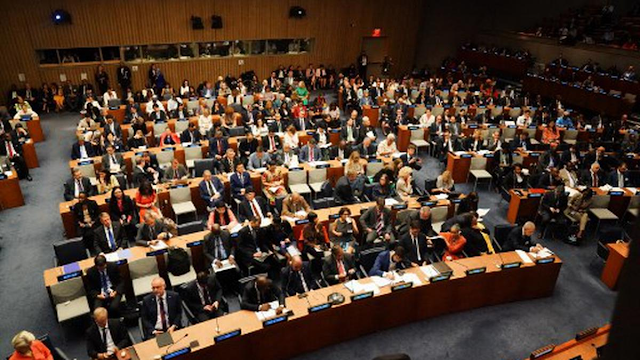China, U.S., and India Absent at U.N.'s Climate Ambition Summit
The United Nations' Climate Ambition Summit, held recently to address urgent global climate challenges, garnered significant attention from world leaders. However, the absence of three major players in the climate arena—China, the United States, and India—left a conspicuous gap in the discussions.
These three countries are among the world's largest greenhouse gas emitters, and their participation in global climate initiatives is crucial for achieving international climate goals, such as the Paris Agreement's targets. The absence of these nations at the summit raised questions about the collective global effort to combat climate change.
China, as the world's largest emitter of greenhouse gases, plays a pivotal role in shaping the future of global climate action. While China has made significant strides in renewable energy adoption, its continued reliance on coal and increasing emissions have raised concerns.
The United States, under President Joe Biden's leadership, has re-entered the Paris Agreement, signaling a commitment to address climate change. However, domestic political challenges and the absence of President Biden at the summit due to other commitments were notable factors in the U.S.'s non-participation.
India, one of the fastest-growing major economies in the world, faces a complex challenge of balancing economic development with environmental sustainability. India's presence at global climate summits is vital for finding equitable solutions that consider the development needs of its large population.
The absence of these nations underscores the complexities and competing priorities that leaders face when addressing climate change. While global cooperation is essential, each country's unique circumstances, priorities, and challenges must be considered in crafting effective climate policies.
Nevertheless, the Climate Ambition Summit was not without progress. Many nations, both large and small, pledged ambitious climate targets and commitments. The European Union, for instance, reinforced its commitment to achieving carbon neutrality by 2050, and smaller nations showcased their dedication to sustainable practices.
The summit's message was clear: the world must urgently come together to tackle the climate crisis. While the absence of China, the U.S., and India was notable, it is hoped that future dialogues and negotiations will encourage their active participation and cooperation in global efforts to combat climate change.
In conclusion, the absence of China, the United States, and India at the U.N.'s Climate Ambition Summit highlighted the challenges in achieving a unified global approach to climate change. Climate action requires collaboration from all nations, and the world is watching for future developments that will pave the way for a more sustainable and climate-resilient future.

.png)
Comments
Post a Comment